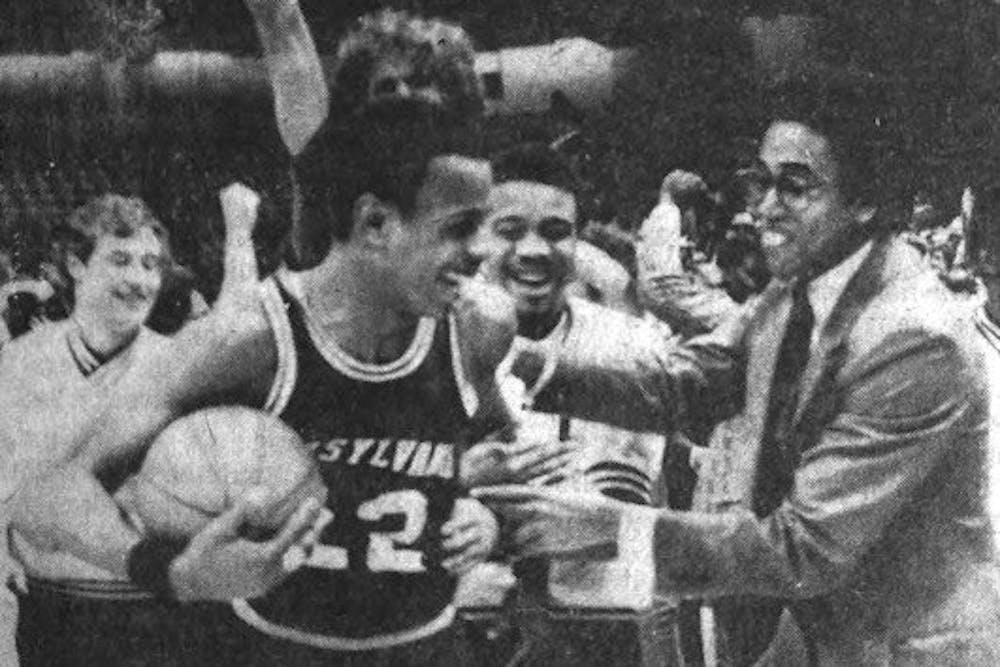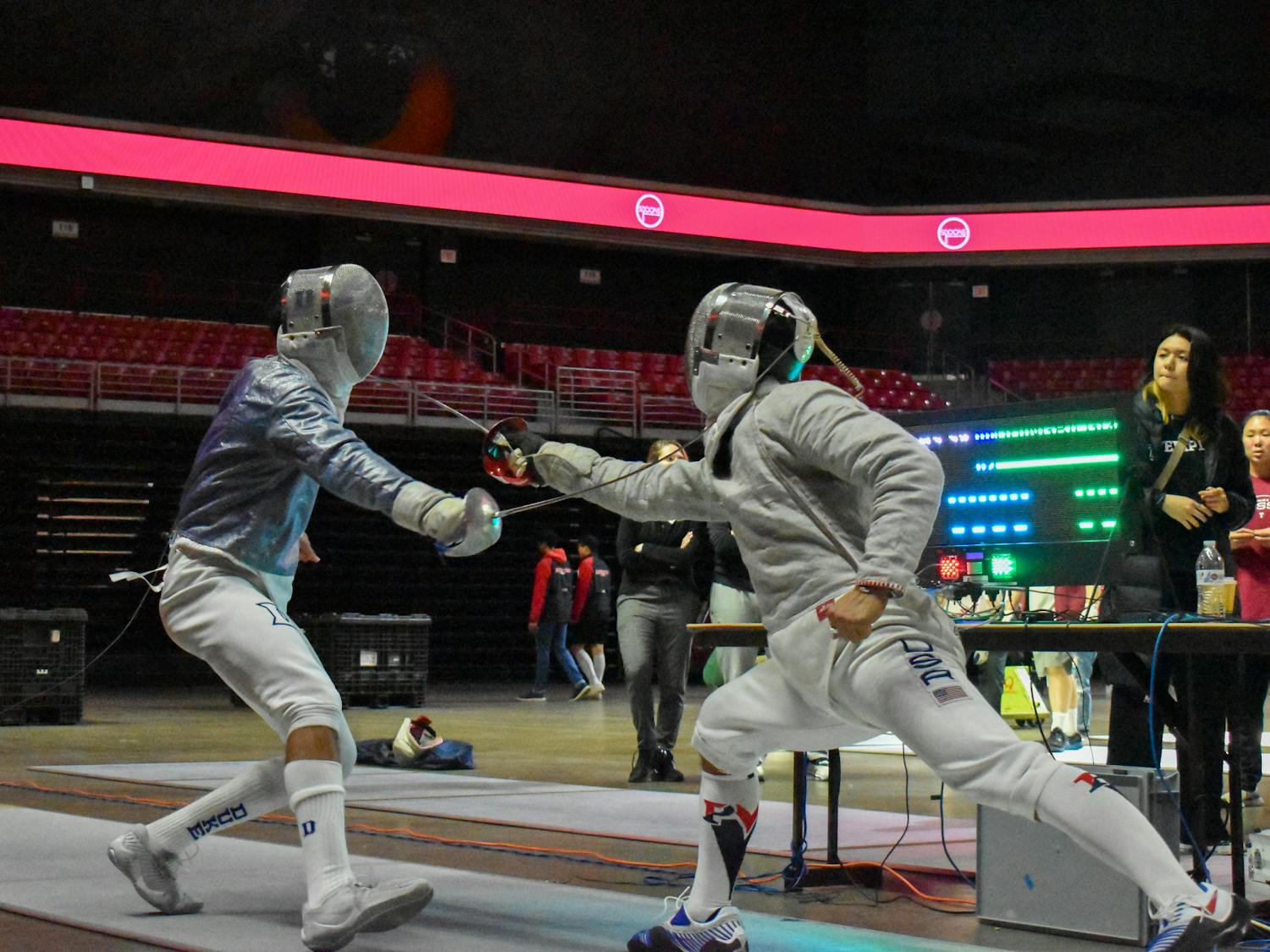The 1970s were the golden age of Penn men’s basketball, as the team reached the NCAA Tournament eight times in the decade. The Quakers’ sustained success culminated in 1979, with arguably the best team in program history.
Even though the Red and Blue dominated the Ivy League for almost 10 years, they were unable to find much NCAA Tournament success under legendary coach Chuck Daly. The team reached the Elite Eight in the 1971 and 1972 seasons but lost each time.
In 1978, Daly made the move to the NBA, becoming an assistant with the Philadelphia 76ers. Bob Weinhauer took over as coach of the Quakers, and the team again went to the NCAA Tournament where they advanced to the Sweet Sixteen, losing to Duke.
Despite falling short in the tournament once again, Weinhauer believed that his Penn team would once again dominate the Ivy League and have real national championship aspirations.
“We knew we were going to be pretty good. In fact, during the summer leading up to the season, I wrote each of the players a letter and gave them as one of our goals not just to get the NCAA playoffs but to get to the Final Four,” Weinhauer said.
Early in the 1978-79 season, the Quakers quickly rattled off five straight wins, including a one-point victory over Big 5 rival La Salle at The Palestra. Senior guard Tony Price hit a late, game-winning jump shot from the baseline to keep Penn undefeated.
The Red and Blue’s streak would end, however, when they traveled to San Diego for the Cabrillo Classic. Their first loss came in double overtime against Iowa, and they lost again to San Diego State in the consolation game.
Coming back to the East Coast, it was time for the Quakers to begin their Ivy League schedule against Harvard. A 103-77 win kicked off an important six-game winning streak for the Quakers, during which they picked up three Ivy wins and two Big 5 victories over Temple and Saint Joseph’s.
The win over St. Joe’s was especially scrappy, as the Red and Blue barely escaped with a hard-fought 43-42 win to clinch a share of the Big 5 title.
The Quakers then welcomed a top-10 ranked Georgetown team to the Palestra, barely losing by a score of 78-76. Now in the heart of their conference schedule, the Quakers maintained their position atop the Ivy standings with four straight Ivy wins.
Surprisingly, the Red and Blue dropped a game to Villanova, losing by a score of 89-80 even though the Wildcats were winless in the Big 5 up to that point. Despite the defeat, the Quakers finished tied with Temple for the Big 5 title, their seventh in the previous 10 years.

After another short Ivy winning streak, the Quakers finally lost their first, and ultimately only, conference game of the year against Columbia. Penn finished the season with a 13-1 record in the Ancient Eight, comfortably winning the conference and securing a spot in the NCAA Tournament.
The Quakers ended up as the No. 9 seed in the East region, set to face Iona in the first round. The Quakers saw a 12-point halftime lead almost completely erased by the Gaels, but held on for a 73-69 win. Price had been the star of the team all year, averaging almost 20 points per game, and he led the team with 27 in the first round of the tournament.
It looked like the Quakers’ season might be ending once again, as they were next set to face North Carolina, the No. 3 team in the country. Price once again dominated with a 25-point effort to deliver the Quakers a close 72-71 win. Junior guard James Salters, senior forward Tim Smith, and senior center Matt White all finished in double digits as well to power the Quakers.
Even though this was Weinhauer’s team, Daly’s fingerprints were still all over the roster. Daly had recruited each of Penn’s five starters, including Price. Many people underestimated the Quakers going into their second-round game, and Price thought the Tar Heels did too.
“We were much better athletes than they thought,” Price said.
Up next for the Quakers was Syracuse, the No. 8 team in the country. The Red and Blue led relatively comfortably throughout and ended up winning by a score of 84-76. Price scored 20 points yet again, and Smith added 18 of his own.
Now in the Elite Eight for the first time since 1972, the Red and Blue were set to face St. John’s, which had just knocked out Duke, the team that sent Penn home the year before. The Quakers managed to scrape out a 74-72 win over the Red Storm to make it to the Final Four for the first time in program history.
With 23 seconds left and the game tied, Salters went to the line and made both of his foul shots to put the Quakers up two. Despite allowing St. John’s three game-tying shot attempts, the Quakers held on for the win.
“When we [beat St. John’s], people couldn't fathom what that meant,” senior forward Tom Leifsen said.
After a decade of believing they were good enough to make it all the way to the Final Four but falling short every year, the Quakers had finally reached their goal. Unfortunately for the Red and Blue, they had to face one of the greatest college basketball players of all time in Magic Johnson and his No. 1 ranked Michigan State team.
The Red and Blue may have been expecting it, but they never had a chance against Magic. Down 31-6 early and 50-17 at halftime, Penn found out quickly that its season would be over.
“If future reflects the past, it is evident that Magic Johnson was as impossible to guard in college as he became in the NBA. If our whole team guarded Magic, the results would probably not have been any different,” Weinhauer said.
Despite falling short of a national championship, the Quakers reached a level of basketball success that they had never reached before, and haven’t since.
“What we did in 1979 will never happen again,” Smith said.
The scene on campus was raucous when the Quakers reached the Final Four, and not much changed despite their loss. When they arrived back in Philadelphia, they were met by an enormous rally of crazed Penn basketball fans at Franklin Field.
“[It was] more people than I'd ever seen before,” student manager Pete Bagatta said. “It was like we were The Beatles.”
Many believe that the 1979 team was the most successful in program history. The run that the Quakers went on probably won’t ever be matched, so this team will continue to have a strong presence in the hearts and minds of Penn basketball fans.









